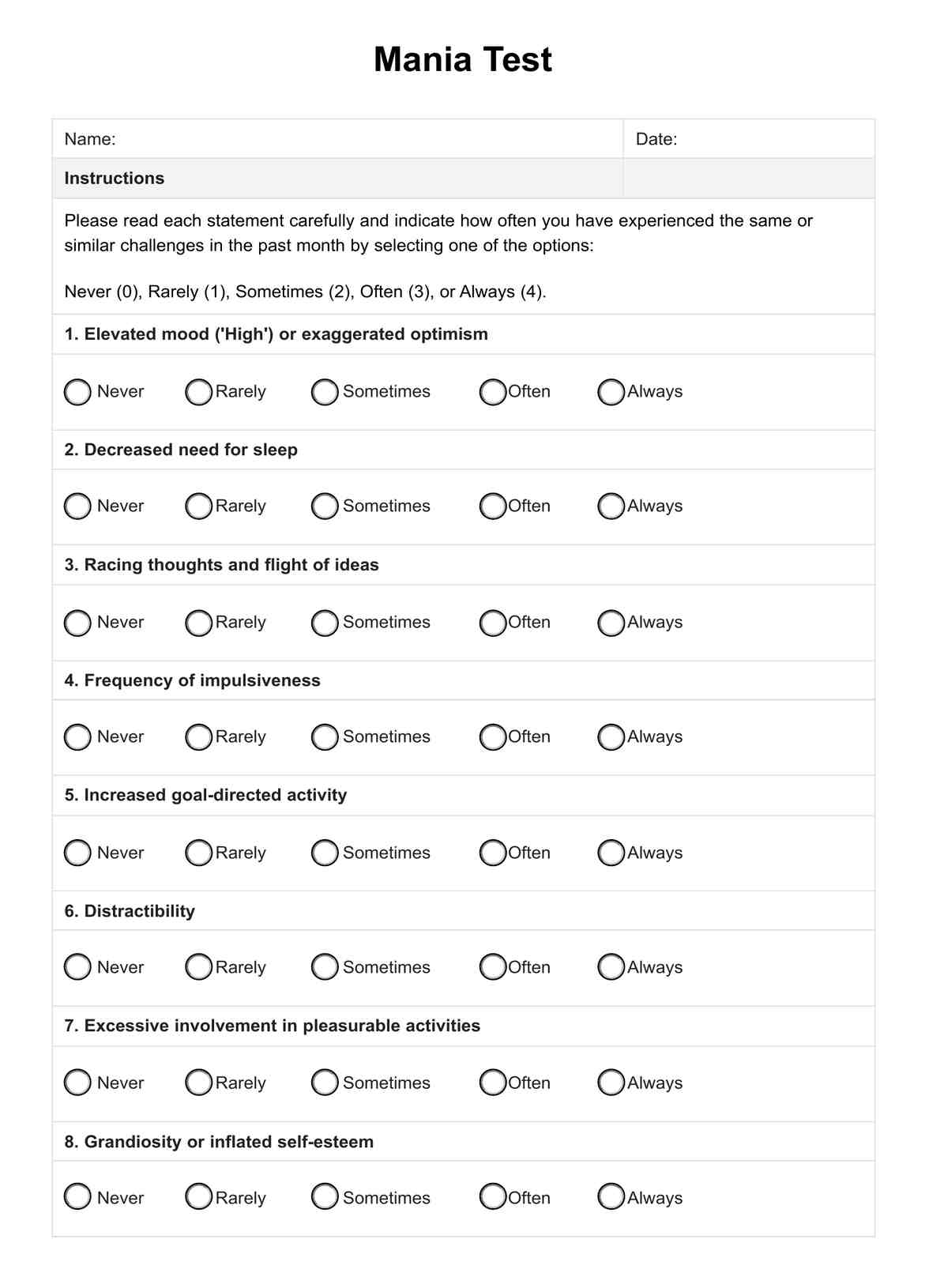Mania unfolds through three distinct stages. The first is hypomania, characterized by elevated energy levels, increased productivity, and a euphoric mood. Following this, acute mania sets in, marked by intensified symptoms, impulsive behaviors, and potential impairment in daily functioning. Finally, a recovery period ensues, during which symptoms gradually subside, and individuals return to a more stable state. Recognizing these stages is crucial for understanding and managing the progression of mania effectively.

Mania Test
Assessing mania symptoms is crucial for mental health awareness. Download Carepatron's free PDF example of a mania test to understand the evaluation process better.
Mania Test Template
Commonly asked questions
Diagnosing mania requires the expertise of qualified mental health professionals. Psychiatrists, psychologists, and clinical social workers are specifically trained to assess and diagnose mental health conditions, including mania. Seeking professional assistance is crucial to ensure an accurate diagnosis and the development of a tailored treatment plan addressing the unique needs of individuals experiencing manic episodes.
Various factors can trigger mania, each contributing to the onset or exacerbation of manic episodes. Stressful life events, such as significant changes or chronic stressors, may catalyze mania—disruptions in sleep patterns, whether excessive or insufficient sleep, can also trigger or intensify manic symptoms. Additionally, substance abuse, including the misuse of drugs or alcohol, has the potential to induce or amplify manic episodes. Identifying and understanding these triggers is essential for individuals and their support networks in managing and mitigating the impact of mania.
EHR and practice management software
Get started for free
*No credit card required
Free
$0/usd
Unlimited clients
Telehealth
1GB of storage
Client portal text
Automated billing and online payments











